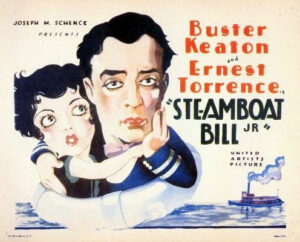Reminder: I’ll accompany the silent movie The Lost World, preceded by the animated short Gertie the Dinosaur, on Twitch tonight, March 13 at 8 PM EDT. I hope you’ll be there!
Dubious choices in SFWA scholarships
The Science Fiction and Fantasy Writers Association (SFWA) is offering “scholarships” for “members of underserved communities.” I put the word “scholarships” in quotes because they’re really free memberships in the 2024 Nebula conference, not educational grants. (The deadline to apply has gone by, sorry.) This sounds admirable, but some of their ideas of what constitutes a “community” make the scheme very disturbing. The categories are:
- “Black and/or Indigenous creators in the United States and abroad.”
- “Asian creators, Asian American creators, and creators from the Pacific Islands.”
- “creators with backgrounds in Spanish-speaking and/or Latin American cultures.”
- “creators with disabilities.”
- “creators whose financial situations may otherwise prevent them from participating.”
- “creators who live outside the United States.”
- “creators who identify as LGBTQIA+.”
 Symphony Hall in Boston has been the site of a lot of great experiences for me. Some are faded in my memory. It’s likely that there’s one which, if you could remind me of it, would make me say, “Of course! Nothing could top that!” Right now, though, I can’t name one that was more breathtaking than last night’s presentation of Peer Gynt.
Symphony Hall in Boston has been the site of a lot of great experiences for me. Some are faded in my memory. It’s likely that there’s one which, if you could remind me of it, would make me say, “Of course! Nothing could top that!” Right now, though, I can’t name one that was more breathtaking than last night’s presentation of Peer Gynt. The Keaton movie I know best is Steamboat Bill, Jr., having accompanied it at the Plaistow, NH library on July 28, 2023. The previous silent I’d accompanied there was Chaplin’s City Lights, and the differences between Chaplin’s and Keaton’s approaches stood out. City Lights tells a story, but it feels like a series of skits put together to comprise a story. The club scene, the robbery scene, and the boxing scene almost stand on their own. Chaplin’s Tramp is pretty much the same from beginning to end. Steamboat Bill, Jr. is more of a continuous story, and Keaton’s character grows a lot during its course. At first he feels out of place, having come from a Boston-area college to a run-down steamboat in the South. By the end, he’s become highly competent and saves four lives. The gags are as important as in a Chaplin film, but they’re more integrated into the plot.
The Keaton movie I know best is Steamboat Bill, Jr., having accompanied it at the Plaistow, NH library on July 28, 2023. The previous silent I’d accompanied there was Chaplin’s City Lights, and the differences between Chaplin’s and Keaton’s approaches stood out. City Lights tells a story, but it feels like a series of skits put together to comprise a story. The club scene, the robbery scene, and the boxing scene almost stand on their own. Chaplin’s Tramp is pretty much the same from beginning to end. Steamboat Bill, Jr. is more of a continuous story, and Keaton’s character grows a lot during its course. At first he feels out of place, having come from a Boston-area college to a run-down steamboat in the South. By the end, he’s become highly competent and saves four lives. The gags are as important as in a Chaplin film, but they’re more integrated into the plot.